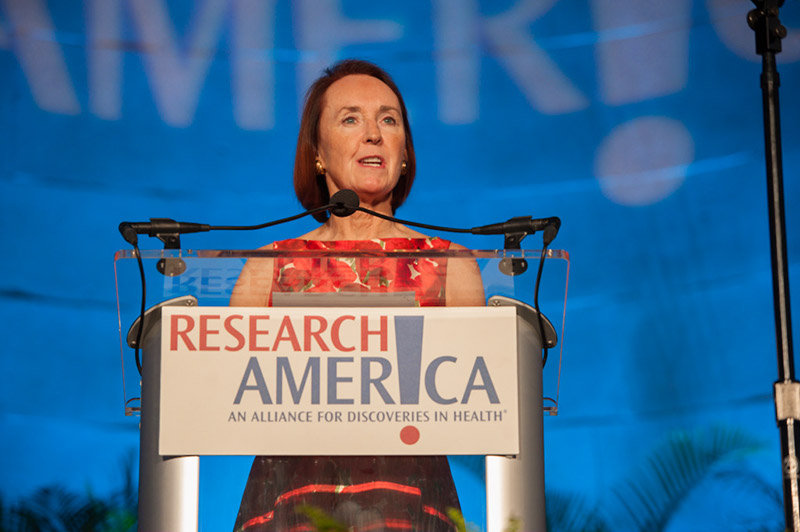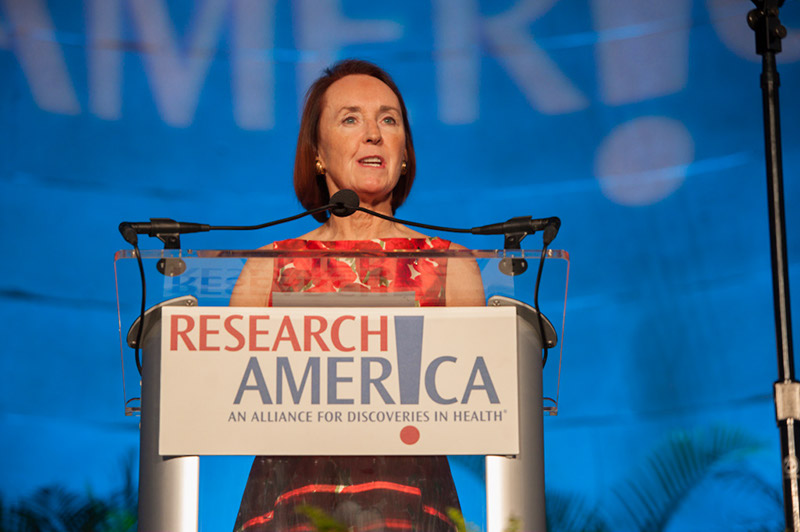Trust in Science; Support Science


Dear Research Advocate,
Deal or No Deal?: House Speaker Nancy Pelosi (D-CA) and Treasury Secretary Steven Mnuchin continue to talk in hopes of clinching a bipartisan agreement on an emergency supplemental. Earlier this week, Research!America sent a letter urging them not to abandon their efforts and to include, in any agreement reached, at least $26 billion to supplement pandemic-eroded research funding. We also tweeted them (you can too!). You can also email your Members of Congress, urging them to voice support for this funding. Advocacy can’t stop now!
Immigration Actions Impacting R&D: The Trump Administration, through the Department of Homeland Security (DHS), has issued proposed and interim final regulations impacting foreign-born students and workers. The first, proposed last month, would end a longstanding policy allowing international students to remain in the United States until they complete their degree, placing strict limits on the duration of status, which educators and students alike say are unrealistic for PhD and MD/PhD students in the sciences. See this detailed summary.
The proposal has drawn an outcry, with over 19,000 comments reportedly submitted to date. The number of comments can make a difference, so please consider adding yours to the proposed rule before the October 26, 2020 deadline.
The second action, an interim final rule (an “interim final rule” is generally used when an agency feels it has “good cause” to issue a final rule without first publishing it as a proposed one) makes a number of definitional and other burdensome changes to the H-1B visa program. Like so many of the recent work-related immigration proposals, this rule flies directly in the face of what is necessary to attract high-level scientific talent and only serves to impede our innovation economy. If your organization would like to connect with groups focusing on the impact of these rules or would like help with comments to submit to DHS, please contact Ellie at [email protected].
In Science We Trust: A recent article in The Washington Post about the decline of public trust in science inspired me to respond. I included our recent survey data showing that trust in scientists across demographics, including political parties, is actually quite strong. That said, there is no question that the public’s trust in government is shaky right now; part of the solution is for more — many more — scientists to get engaged. Former NYC Health Commissioner Dr. Mary Bassett, writing in Nature, urges scientists and researchers to engage in societal issues and provocatively asks, “By ‘staying in our lane’ and out of politics and advocacy, did U.S. researchers unwittingly help pave an open highway for COVID-19?” I’m hard-pressed to point to another time when the voices of scientists have mattered more than they do today.
Over the next 10 days, we urge scientists and stakeholders to utilize the non-partisan www.VoteScienceStrong.com site to raise the volume about why candidates must make a science strong future for our nation a top priority.
Post-Election Briefing: Journalist and political analyst Frank Sesno, former CNN Washington Bureau Chief and anchor, and Director of The George Washington University’s School of Media and Public Affairs, will lead off our post-election briefing on Tuesday, November 10 from 11 a.m. – 12 p.m. ET. (Registration information coming soon.) Frank held probing interviews with CDC Director Dr. Robert Redfield and Representatives Diana DeGette (D-CO) and Fred Upton (R-MI) during our September National Health Research Forum.
Podcasts of Note: Pediatrician and advocate Dr. Todd Wolynn, from Shots Heard Round the World, and also a speaker at our Forum, recently joined J&J’s excellent podcast “The Road to a Vaccine” to discuss Everything You Need to Know about COVID-19 Testing and Contact Tracing. And speaking of podcasts, do check out Mark Bayer’s series When Science Speaks. My colleague Jenny Luray and I joined Mark recently to talk about our contribution to the Day One Project, proposing that federally-funded PhD students in science, technology, engineering, and math (STEM) receive training to enable them to engage effectively with the public.
Early Career Opportunity: Supported by a grant from the Rita Allen Foundation, our Microgrant program kicks off its third year of funding for projects designed and led by science PhDs and postdocs to engage with public officials and community leaders. Groups this spring had great success working virtually. Please share this opportunity within your institution! Applications are due November 9, 2020. A second round is planned for December. Click here for details.
Alliance Member Meetings: Yesterday, alliance members were briefed by leaders of the BRAIN Initiative on this remarkable cross-institute, cross-agency research undertaking. NINDS Director Dr. Walter Koroshetz, BRAIN Initiative Director Dr. John Ngai, and Chief of NINDS’ Office of Neuroscience Communications & Engagement Dr. Samantha White shared some of the progress made to better our understanding of the “remarkable biological computer.” They also discussed the intensive effort underway to anticipate and address medical ethics issues as research proceeds. Watch, rewatch, and share a recording of the fascinating discussion.
Join us on Wednesday, October 28, 2020 at 3 p.m. ET for an alliance member meeting focused on the 2020 election outlook. Register here.
Book Release: The autobiography of Dr. William Haseltine, scientist, businessman, philanthropist, and teacher, is now available. Bill’s outsized contributions to advancing medical progress are many and include designing an early treatment strategy to combat HIV/AIDS and creating new drugs based on our early knowledge of the human genome. It’s a great read, not least for a glimpse of his commitment to advocacy for science. My appreciation and congratulations to Bill.
Stay well, stay safe, and stay connected.
Sincerely,
Mary Woolley




